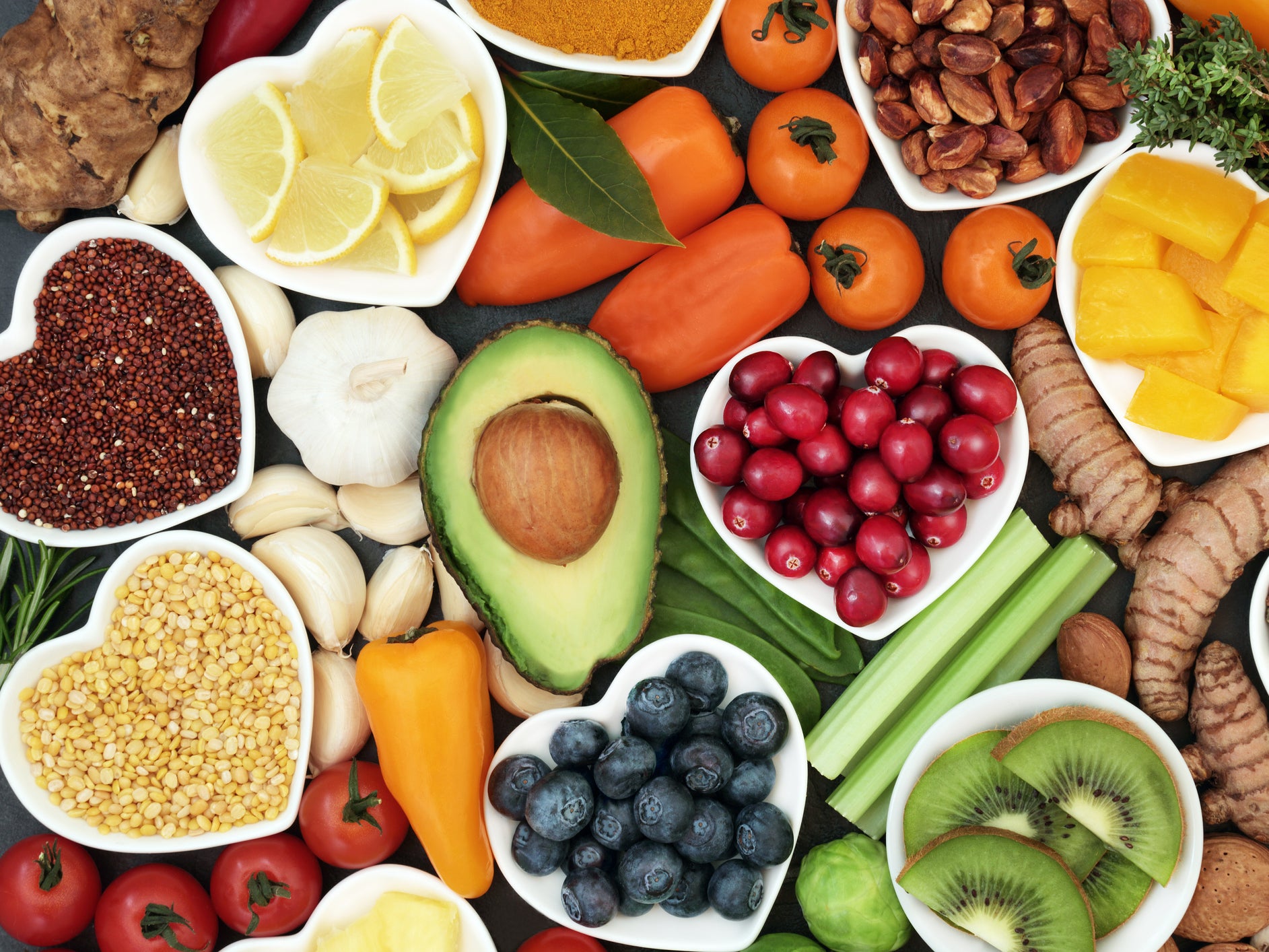Are vegan and vegetarian diets healthy for children?
Vegan diets require nutritious alternatives to protein and lots of variety

For parents or guardians raising children, ensuring that they follow a healthy, balanced diet is a top priority, whether that means checking that they don't consume excess sugar or making sure that they eat their five fruit and vegetables a day.
When it comes to feeding a child a vegan or vegetarian diet, a new set of guidelines released on Thursday by the British Nutrition Foundation (BNF) states that they must eat at least three portions of protein a day so that they’re consuming enough zinc and iron.
The organisation outlines that while children who follow vegan or vegetarian diets may lead healthy lifestyles, it is recommended that parents visit a GP for advice on how to ensure their children consume the appropriate amount of nutrients.
“It can be difficult for young children to get enough vitamin A and B12, riboflavin, iron, zinc, calcium and iodine,” the BNF states.
But how can one make sure that a child who is vegan or vegetarian eats a nutritious, balanced diet?
Celebrity Vegans: From Beyoncé to Natalie Portman
Show all 13A plant-based diet can be just as nutritious as a non-vegan diet
According to the Academy of Nutrition and Dietetics, there is no reason why a vegan diet shouldn’t provide an infant with an appropriate amount of nutrients.
“It is the position of the Academy of Nutrition and Dietetics that appropriately planned vegetarian, including vegan, diets are healthful, nutritionally adequate, and may provide health benefits for the prevention and treatment of certain diseases,” the organisation states.
“These diets are appropriate for all stages of the life cycle, including pregnancy, lactation, infancy, childhood, adolescence, older adulthood, and for athletes."
What to do when a child starts following a vegan or vegetarian diet
A vegan diet consists of only plant-based foods, while a vegetarian diet may include animal by-products such as milk, eggs and cheese.
According to nutritionist Lily Soutter, if food groups are being cut from a child’s diet, it is essential that parents or guardians seek guidance from a nutritionist or dietician.
“Growing children have higher nutrient demands and energy requirements for their body size in comparison to adults,” Soutter explains to The Independent.
“However, vegan diets can often be bulky and high in fibre, meaning that children may feel full before they have consumed enough calories or nutrients.”
Soutter adds that if children consume an “inadequate” amount of energy, then this may cause their growth to “be stunted”.
“It is therefore important to focus on consumption of energy and nutrient dense foods such as nuts, seeds, hummus, bananas and healthy fats,” the nutritionist says.
Variety is key
A spokesperson for the BNF tells The Independent that the key to ensuring that a vegan or vegetarian child follows a healthy diet is making sure that it is varied.
According to the new BNF guidelines, it is advisable for children to eat five or more portions of fruit and vegetables a day, three portions of dairy food and two portions of protein.
“Plant foods have very different patterns of amino acids compared to animal proteins but vegans and vegetarians can get all the amino acids they need by consuming a variety of different plant sources of protein, for example pulses and cereals,” the spokesperson says.
They explain that children following vegan diets should eat nutrient-dense foods, such as avocados, tofu, bananas, nuts, seed butters, vegetable oils and vegan fat spreads.
They add that as meat is a “good provider of easily absorbable iron”, alternative sources of iron are essential, particularly for growing children.
Nutritious alternatives for meat-sourced iron include wholegrain cereals, dark leafy vegetables, beans, lentils, fortified cereals and dried apricots.
If a child is vegan, it is important to note then they may not be consuming enough Vitamin B12.
Vitamin B12 is a nutrient which helps the body’s blood cells remain healthy, and can be found in animal by-products such as milk and eggs.
The BNF spokesperson recommends sourcing a fortified breakfast cereal which contains the nutrient as a sufficient alternative.
Is breastfeeding vegan?
According to the NHS, it is recommended that all babies be fed breast milk exclusively up until the age of six months old, regardless of whether they’re being raised vegan or not.
While some may assume that this contradicts vegan beliefs, People for the Ethical Treatment of Animals (PETA) explains that this isn’t the case.
“Many vegan mothers are asked if they plan to breastfeed their babies, with the misunderstanding that vegans eschew even human milk. But whether to breastfeed is a choice that humans get to make, while cows and other animals abused for dairy production don’t,” the animal rights organisation states.
“Like all mammals, a human mother produces milk for the sole purpose of nourishing her baby. So for vegan mums and their babies, there’s no moral contradiction in breastfeeding.”
When it comes to moving a baby onto vegan solid foods, The Vegan Society states that its diet should include sources of iron, which can be found in beans, chickpeas, lentils and tofu.
The Vegan Society also says to avoid adding salt or sugar to a baby's first foods.
For more information about how to provide a vegan child with a healthy, nutritious diet, visit The Vegan Society website here.
Subscribe to Independent Premium to bookmark this article
Want to bookmark your favourite articles and stories to read or reference later? Start your Independent Premium subscription today.

Join our commenting forum
Join thought-provoking conversations, follow other Independent readers and see their replies